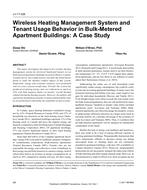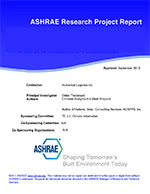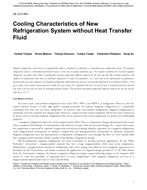This paper analyzes a new window technology—electrostatically actuated blinds inside insulated glass. The new technology is a system of insulated glass and blinds with the slats being rotated by electrostatic forces. Both thermal and electromechanical analyses are performed.
The thermal analysis compares the convection in the airspace to a standard insulated glass window. The analysis shows that when the blind slats are closed, there is a very small reduction in the convection across the airspace. When the slats are open, the convection is increased. This work suggests that the primary energy advantage of the new technology is in optimal operation with respect to solar radiation and daylighting. It is assumed that the radiation through the window is similar to windows with externally mounted blinds, and the analysis is recommended as future work.
The electromechanical analysis theoretically predicts the electrostatic charge buildup on the components of the window. The blind slat angles are then determined as a function of applied voltage. The theoretical predictions agree with experimental results.
Units: Dual
Citation: ASHRAE Transactions, vol. 108, pt. 2
Product Details
- Published:
- 2002
- Number of Pages:
- 7
- File Size:
- 1 file , 6.7 MB
- Product Code(s):
- D-8852


